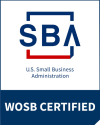Getting the Diploma and the Education!

By now, most high school seniors are eagerly looking forward to the big day—graduation! Soon, school districts and charter schools will be giving out diplomas to IEP students as if the past year of “so-so” education never happened. Does your child with disabilities have the skills to transition to the “real” world? Did she receive the education and life skills training that she needed? Did he miss significant services, supports and instruction during distance learning? Did their school conduct a vocational assessment and follow a personalized transition plan? You may be attending your child’s last IEP right about now. Make sure they’re getting their education as well astheir diploma.
- Meaningful Transition Plan. One of the main goals of special education law is to prepare students with disabilities for further education,employment, and independent living. This applies even during COVID-19 distance learning. To ensure that this happens, the IEP team must develop and implement a Transition Plan before the student turns 16. Your child actively participates in this process and attends the Transition IEP meeting along with any other agencies such as the Regional Center orDepartment of Rehabilitation.
- Full Vocational Assessment: The school district or charter school mustconduct a vocational assessment before the transition IEP to determine your child’s interests and potential. We often see cookie-cutter assessments and transition plans with unrealistic goals. For example, “Johnny wants to design computer games. He will go to a 4-year college and major in computer science.” However, this is unlikely if Johnny is at a3rd grade level in Math in the 12th grade. He will need a great deal of additional academic support to reach his goal. Make sure the vocational assessment and transition plan are focused on child’s unique needs.
- Stay Involved. Attend the last (exit) IEP with your child and sign your approval if you understand and agree 100% that your child received her appropriate special education and related services. It’s not too late to demand additional services due to missed schooling, even if they extend past graduation.
- Get Help. Even if you have already agreed to the final IEP, it’s not too late to get help for your child. Working together, parents and graduates may pursue remedies against their school district or charter school for a period of up to two years beyond graduation. You will likely need help from a very experienced special education attorney in your area to pursuepost-graduation claims against school districts or charter schools. Check with your State Department of Education, the Council of Parent Attorneys and Advocates for a list of local, highly-experienced special education lawyers.

